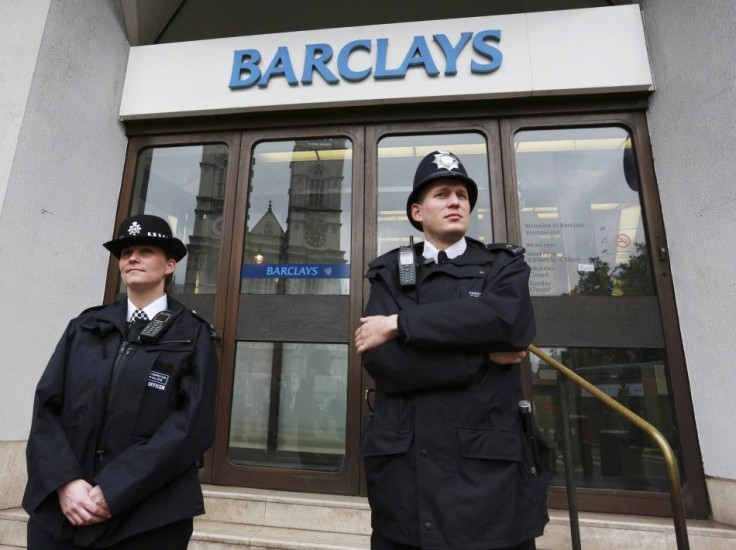EU To Criminalize Rate-Fixing...And About Time Too

The EU is looking into the possibility of making Libor and Euribor rate-rigging -- the deliberate manipulation of interest rates that set the benchmark for over $500 trillion in financial contracts - a criminal offense.
Of course, the news here isn't that they're thinking of making it a criminal offence, but that it isn't one already. After the 2008 financial crisis we were promised change, banking would never be the same again, and out of the CDS/CDO/real estate mess would rise a different system.
But now with Libor and the recent news that HSBC has been unwittingly laundering billions in terrorist and drug cartel cash, we know the truth; dodgy bankers are still doing dodgy business on a grand and systematic scale.
And lest you think it's isolated to these two issues, think again.
According to the New York Times, Swiss bank UBS have been at it for years.
In 2008, writes James Stewart, the bank reimbursed clients and settled with the S.E.C to the tune of $22.7 billion to resolve charges the bank defraud customers by selling them auction-rate securities (which they said were sound) while senior execs knew the market was collapsing. According to then NYC attorney general Andrew Cuomo: While thousands of UBS customers received no warning about the auction-rate securities market's serious distress, David Shulman -- one of the company's top executives -- used insider information to take the money and run. They escaped prosecution.
In 2009, Stewart continues, UBS gained a deferred prosecution agreement for swindling the U.S. tax authorities. And not just in a small way either. UBS were found to have created 17,000 secret Swiss bank accounts for rich Americans to squirrel away their millions, even -- according to the article -- sending scouts to polo clubs, tennis matches and celebrity events actively touting for business.
After they were busted, UBS agreed to pay $780 million in fines and penalties and release the names of many of its American clients. Again, no prosecution.
Last year, UBS were up in front of the S.E.C again, admitting its employees had: Repeatedly conspired to rig bids in the municipal bond derivatives market over a five-year period, defrauding more than 100 municipalities and nonprofit organizations. And yes, you guessed it, they said sorry, paid $160 million in fines and were even applauded by the Justice Department for their remedial efforts to curb anticompetitive practices.
Finally, UBS has been accused by the Federal Finance Housing Agency (the ones overseeing Fannie Mae and Freddie Mac) of materially false statements and omissions, in relation to the mortgage-backed securities nightmare that triggered the whole financial crisis in the first place. The FFHA is seeking $1 billion in damages. For the record UBS has denied the charges.
Lest they send the attack dogs after IBTimes for carelessly besmirching their good name, I have to tell you that UBS have not been charged with criminal or civil misconduct relating to mortgage-backed securities. Yet.
After all that, only one person from UBS has been sentenced for their role in any of the above scandals. Bradley Birkenfeld, the man who originally blew the whistle on the tax evasion scam, was sentenced to 40 months in prison.
At UBS, a series of immunity, nonprosecution and deferred prosecution agreements in recent years - evidently the government's preferred approach to corporate crime - seems to have had scant, if any, deterrent effect, The Times noted.
The same can be said of Barclays and HSBC, who have so far wriggled out of prosecution by saying sorry and paying fines of $450 million and a possible fine of up to $1 billion respectively.
According to European Commission vice president Viviane Reding, people's confidence in the banking sector has been shaken following the Libor scandal (and the rest).
Speaking on Thursday, she added EU action: Was needed to put an end to criminal activity in the banking sector and criminal law can serve as a strong deterrent, according to the AP.
Apart from winning an award for stating the bleeding obvious, Reding may actually be on to something.
Instead of accepting cash and crocodile tears from the likes of Barclays/UBS/HSBC et al., aggressively pursuing those individuals who commit fraud on a scale that undermines the very fabric of our economic system might actually get some way towards cleaning up high finance.
© Copyright IBTimes 2024. All rights reserved.





















